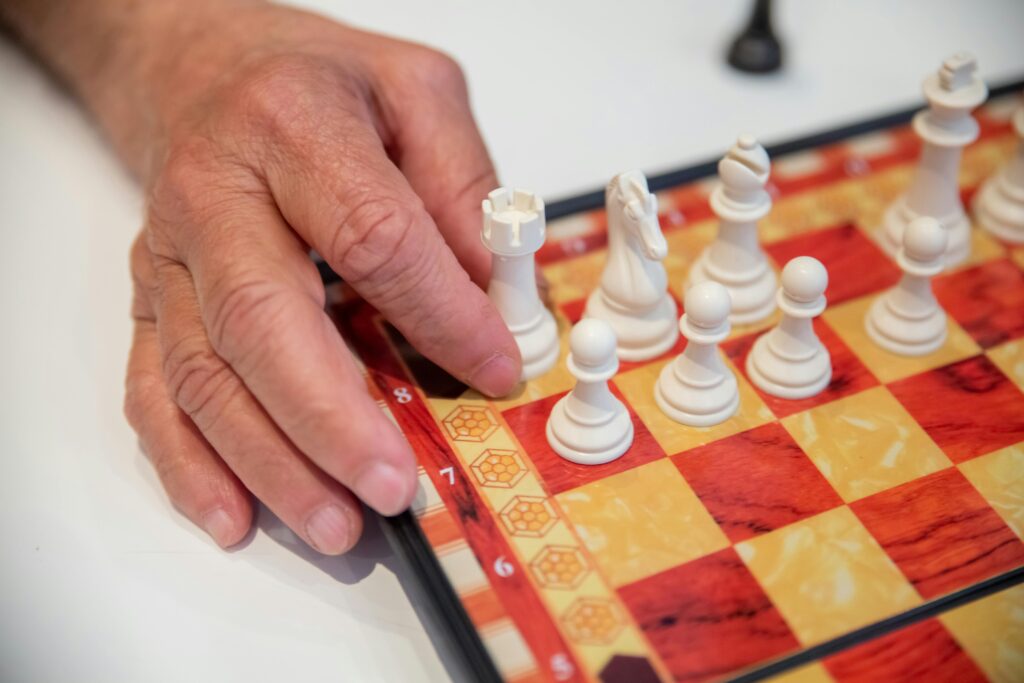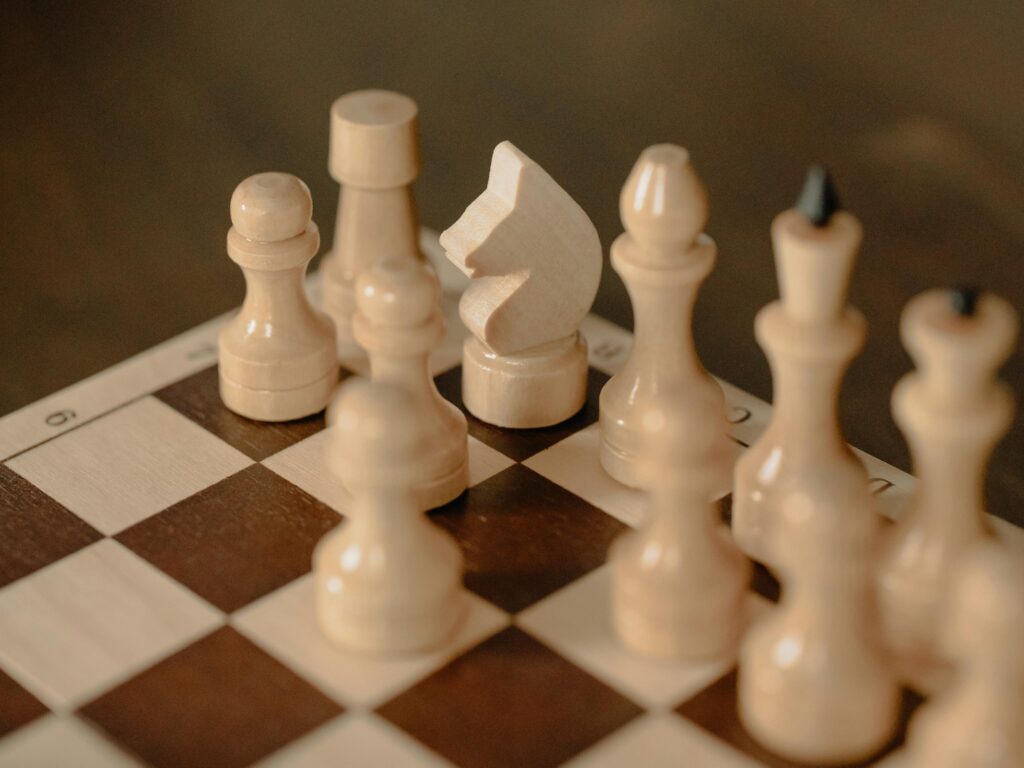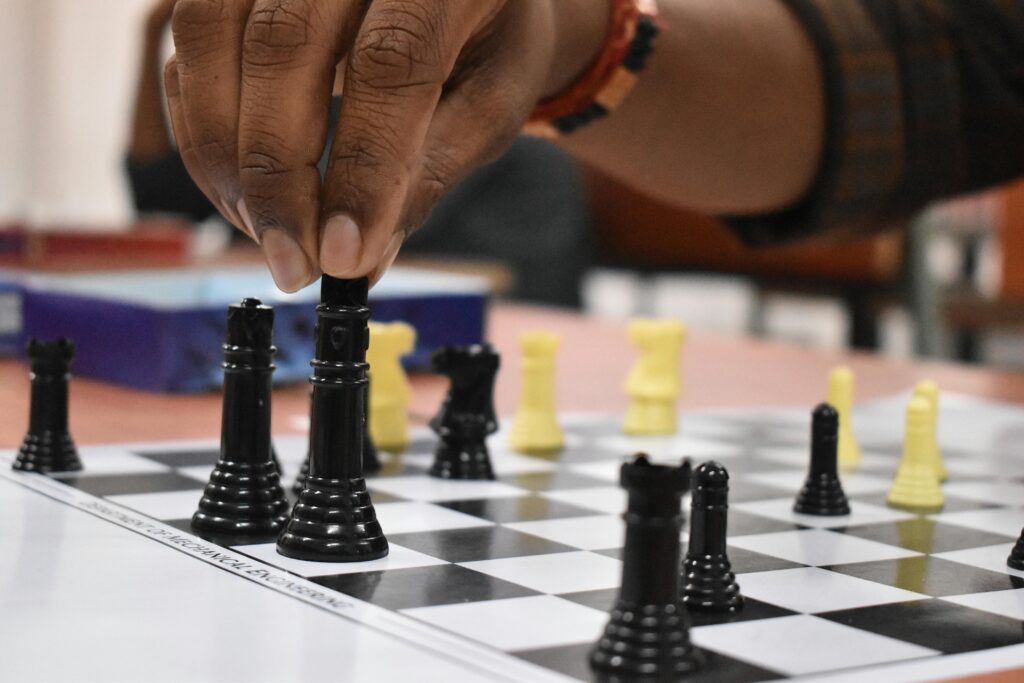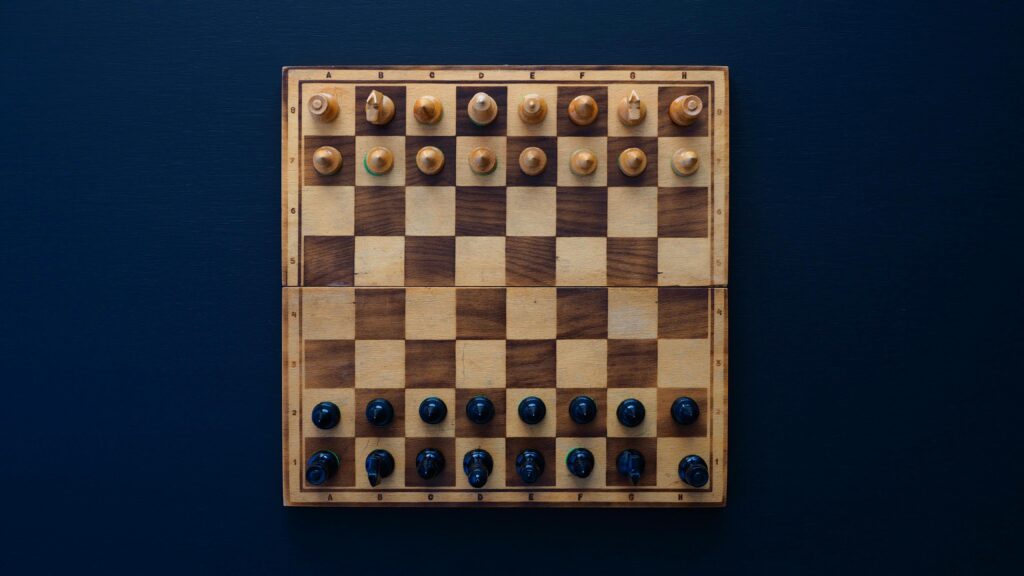Chess isn’t just a game. It’s a brain-builder. It helps kids become patient, focused, and think ahead. And today, finding the right chess coach is easier than ever, thanks to online learning.
Online Chess Training
Learning chess online is like having the best coach come to your home—every single day. You don’t need to drive anywhere. You don’t need to wait in line. You just sit down, turn on your device, and start learning.
Online chess classes give kids the tools they need to learn faster, stay focused, and enjoy the game. But here’s the thing—it’s not just about playing. It’s about growing.
Landscape of Chess Training in Moseley and Why Online Chess Training is the Right Choice
Moseley is known for its creative spirit. Kids here love to explore new things. But when it comes to chess coaching, the options can feel a little limited. There are a few clubs in the area. Some meet in community halls or schools. They’re fine if you’re looking for casual play or meeting other players.
But if your child wants structured, serious training—something that grows with them—most offline options just don’t cut it.
That’s where online training shines.
Online chess schools like Global School of Chess offer something that local clubs usually can’t: a clear learning path. Every class is designed to teach something specific. Every coach knows exactly what level your child is at. Every game has a goal.
Offline classes in Moseley may meet once a week, sometimes with a group of kids all at different levels. One child may be a beginner, another might be preparing for tournaments. It gets messy fast.
Online coaching solves this. Your child gets a personalized path, lessons that match their skill level, and coaches who focus only on them. Plus, they can join from anywhere—home, grandma’s house, even on vacation.
Another thing? Safety. Online learning means your child learns in a safe, familiar place without the need to travel. For busy parents, that’s a big win.
How Global School of Chess is The Best Choice When It Comes to Chess Training in Moseley
Now let’s talk about the star of the show—Global School of Chess.
This isn’t just an online chess school. It’s a place where kids learn to think sharper, plan better, and grow more confident with every move. And yes, it’s completely online.
But don’t let that fool you. These aren’t just videos or apps. These are live, one-on-one or small group classes led by expert, FIDE-certified coaches. That means every coach is a real chess professional who’s been trained to teach.
And they’re not just teaching the game. They’re building life skills. At Global School of Chess, kids learn:
- How to think before they act
- How to stay calm when the pressure is on
- How to plan ahead, step by step
- How to lose with grace and win with humility
It’s not just about getting better at chess. It’s about getting better at life.
Here’s what makes Global School of Chess stand out:
1. Structured Curriculum: Every child follows a clear, step-by-step path. No guessing, no skipping. Just solid progress.
2. Live, Interactive Classes: These are not recordings. Every class is live, every question gets answered, every game gets reviewed.
3. Personalized Coaching: Whether your child is a beginner or a budding champion, they get a learning plan just for them.
4. Regular Tournaments: Kids get to test their skills in real games with other students from across the world. These are held every two weeks, so there’s always something to look forward to.
5. Global Community: Kids from over nine countries learn together. They get exposed to different styles of play and make friends from around the world.
6. Real Coaches, Real Care: Every coach is FIDE-certified and trained not just in chess, but in how to teach children. They’re patient, kind, and passionate about helping kids succeed.
Offline clubs in Moseley might teach chess. But Global School of Chess builds chess players.
And the best part? You can try it for free. Parents can book a free trial class here: Take a Free Trial Class
That’s the beauty of it. You don’t have to take our word. Just try it, see your child light up with joy, and decide from there.
Offline Chess Training
Now let’s take a look at offline chess training—what it looks like, what works well, and where it falls short.
In many parts of Moseley and nearby areas, offline chess classes usually happen in local community centers, libraries, or school halls. Some are run by chess enthusiasts. Some by retired players. Others are part of larger chess clubs that meet once a week.
There’s something charming about sitting across from a real person and moving real wooden pieces on a board. Kids get to meet other players face to face, which is great for social skills. Some even compete in small local tournaments, usually once every few months.
But here’s what you need to know: offline classes are often hit-or-miss.
Most of them don’t follow a proper system. There’s no clear curriculum. Some kids learn fast, others fall behind. It’s like putting a beginner and a tournament player in the same math class. One’s bored, the other’s confused.
Coaches in these classes often juggle 10–20 kids at once. That means your child might get only a few minutes of real attention during a session. Feedback is limited. Progress is slow. And if your child misses a class? They’re left behind.
Also, let’s not forget the challenge of time. Driving to a class, waiting through traffic, finding parking, rushing back home—all that adds up. It turns something fun into something tiring.
Yes, some kids do well in this setup, especially if they already have strong chess foundations or if they are very self-motivated. But for most kids, especially beginners, this method doesn’t work anymore.
Kids today need structure. They need clear steps. They need to be seen and heard. And that’s hard to get in a group of 20 kids in a school cafeteria once a week.
Which brings us to the real truth.
Drawbacks of Offline Chess Training
Offline chess training may seem like the traditional, “safe” choice. After all, it’s how many of us learned. Sit across a board, feel the pieces, watch your opponent’s eyes. But in today’s fast-moving, distraction-filled world, sticking with old methods can hold students back in big ways.
Here are even more unique and often-overlooked reasons why offline chess coaching can limit a child’s potential—and how parents and academies alike can take smarter steps forward.
Hidden Time Waste
Offline classes often involve more time outside the actual learning. Think about it: time spent getting ready, commuting, waiting for class to start, waiting for others to finish games, wrapping up… In many cases, a one-hour class ends up taking two to three hours of your day. That’s energy and time that could be used for review, rest, or family time.
Actionable Advice:
Families should track not just the class duration, but the “total time cost” per session. Compare that with how much direct, quality feedback your child receives during that time. If it’s under 10 minutes per class, it’s time to rethink the model.
One Coach, Too Many Hats
In offline environments, the coach isn’t just teaching—they’re organizing tables, managing the group, setting up boards, calming noise, and trying to watch multiple games at once. That’s a lot for one person. Naturally, their focus is scattered. It’s tough to give each child the attention they deserve.
Actionable Advice:
Ask about the coach-to-student ratio before enrolling. Ideally, there should be no more than 1 coach for every 6–8 students in a serious chess lesson. Anything higher, and personal feedback suffers.
Classroom Burnout
Offline classes are often scheduled after school or on weekends—times when kids are already tired. Add in the social dynamics of a group, the distractions of friends, the noise of a shared space, and it’s a recipe for burnout. Kids may smile and say they had fun, but learning suffers if they aren’t fully engaged.
Actionable Advice:
Gauge your child’s energy levels after class. Are they mentally stimulated, or just socially satisfied? Ask them what they learned—and if they can’t explain, that’s a sign the learning wasn’t deep.
Lack of Goal Setting
Offline programs often don’t have clear progress goals. Kids just “attend” classes without knowing what they’re working toward. There’s no talk of leveling up, preparing for specific tournaments, or reviewing past mistakes in a structured way.

Actionable Advice:
Parents should request a training roadmap from any chess academy—what milestones will be covered, how progress is tracked, and what success looks like. If that doesn’t exist, your child is on a treadmill, not a path.
Limited Feedback Loops
When a student plays a bad move or loses a game, offline coaches may not have time to walk them through the mistake. Worse, the student may not even remember what happened, especially if there’s no digital record. That’s a lost learning opportunity.
Actionable Advice:
If you’re enrolled in an offline academy, start recording your child’s games or ask if they can use digital boards alongside real play. This way, key moments can be revisited and reviewed—even at home.
Parent Blind Spots
Offline chess clubs rarely loop parents into the process. There are no post-class updates, no detailed reports, no visibility into what was taught or how the child performed. Parents are left guessing based on their child’s mood or scattered comments.
Actionable Advice:
Insist on monthly feedback sessions or written performance reports. If a program can’t offer that, it’s not serious about progress.
Inflexibility
Life happens—illness, travel, school events. In offline settings, missing a class often means missing the entire lesson. There’s no replay. No makeup. The gap stays there unless the parent arranges for private catch-up lessons, which cost extra.
Actionable Advice:
Find out how absences are handled before joining any offline club. If they offer no plan for makeup learning or content recap, consider if your investment is really protected.
Best Chess Academies in Moseley
Here, we look at the top five chess academies that provide coaching—both online and offline—that serve students in Moseley, Birmingham. You’ll get a clear feel for each one and see how Global School of Chess truly stands out.
Global School of Chess
Global School of Chess is built from the ground up to help kids learn, grow, and become confident thinkers.
Structured Learning Path
Unlike local clubs, Global School of Chess follows a clear, step-by-step program. Kids move through levels in a logical order—openings, tactics, strategy, endgames. No gaps, no confusion.
Each lesson builds on the previous one. Your child won’t waste time playing the same opening over and over with no understanding. They’ll know exactly which moves work, which don’t, and why.
Live, Personalized Coaching
Every class is live. Every student gets a coach’s attention. Whether it’s one-on-one or a small group, kids can ask questions, get instant feedback, and play real games. Coaches review each move with them, pointing out strengths and weaknesses. They create a strong bond with each student and track their progress closely.
Real-Life Chess Community
It’s not just about lessons. It’s about being part of a team. Students connect with others from nine different countries, play in bi-weekly tournaments, and learn from different playing styles. It’s an international chess community—right from home in Moseley.

FIDE-Certified Coaches and Life Skills
These coaches aren’t just good at chess. They’re trained to teach kids. They know how to encourage focus, patience, and decision-making. They celebrate wins and guide students through loss. That builds confidence. On the board and off.
Free Trial
You don’t buy before you try. Parents can book a free trial. No risk. Just one class to see the coach, the curriculum, the community—and how your child lights up.
Why It Matters for Moseley Families
Local offline options are limited in structure, progress tracking, and coaching quality. Global School of Chess solves those problems. Moseley kids get a full chess education delivered with love, care, and real results.
With Global School of Chess, chess training becomes more than just a hobby. It becomes a journey in thinking, confidence, and skill—where every step is clear and every child is seen.
Moseley Chess Club (Local Club)
Moseley Chess Club meets weekly in a community hall. It’s a warm, local group of chess lovers—kids and adults together.
What’s good?
There’s face-to-face time and a friendly vibe. Kids get to meet other players nearby. They play real games with actual pieces.
Where it lacks…
There’s no clear curriculum. Beginners and tournament players mix in the same session. Coaches lead casual play, not structured lessons. Feedback is out of step. Progress can stall quickly. And there’s little to no tracking or reports for parents.
Birmingham Chess Centre (City Club)
A bit more serious, Birmingham Chess Centre runs weekend lessons and school holiday workshops. They sometimes prepare students for local tournaments.
What’s good?
They do cover tactics and opening theory. Students play tournament-style games. Coach quality varies—some are experienced, some are volunteers.
Where it lacks…
It’s still group-based. Lessons are blocks of 20–30 kids. Limited personal attention. No regular progress tracking. No curriculum. Travel and time become roadblocks when balancing school and activities.
UK Chess Coaching (Online-Based)
This is another online chess school. They offer live group lessons and pre-recorded video courses.
What’s good?
Online convenience. Variety in teachers and lesson styles. Students can learn from home.

Where it lacks…
Group sizes can be too big—up to 10–15 learners, which leaves little room for personal focus. No clear progression path across levels. Classes may feel rushed. Coaches may not be FIDE-certified or trained for teaching kids. Community is more transactional and less close-knit.
Local School Chess Club (School-run)
Many schools in Moseley run extracurricular chess clubs after class. These are casual and run by teachers or volunteers.
What’s good?
Kids already know each other. It’s easy to join. It’s free or low cost.
Where it lacks…
There’s no coaching structure. It’s mostly open play. No real lessons. No tracking, no feedback. Once classes end, there’s no continuity. It doesn’t help much beyond playtime and fun.
Why Online Chess Training is the Future
Let’s imagine something for a moment. Your child walks into a room. There’s a screen. A coach is smiling, welcoming them by name. In just a few clicks, they’re solving puzzles, discussing moves, and playing games—all in real-time, all from home. That’s not just the future. That’s now.
Online learning has changed how kids learn music, languages, and yes—chess. And it’s not just because of the internet. It’s because it works better.
In the past, if you wanted to find a good chess coach, you had to hope someone lived nearby. Today, the best coaches in the world are just a click away. That’s the biggest reason why online chess training is here to stay.
But let’s look deeper.
Easy Access, Anytime
Online training removes all the headaches. No traffic. No rainy drives. No late-night pickups. Your child learns in their own safe, familiar space. That comfort makes it easier to focus, ask questions, and grow.
Plus, if your child needs to review a class or go over feedback? It’s all right there. Easy to revisit, easy to understand.
Personalized Like Never Before
In most offline clubs, kids sit in large groups. Some kids get bored. Some fall behind. The coach just can’t help everyone all the time.
Online coaching—especially at places like Global School of Chess—is different. Each student follows their own path. The coach knows exactly what your child needs, what they’ve learned, and what’s next. That makes every class count.

Smart Tracking
With online platforms, it’s easy to track your child’s progress. Parents can see reports. Coaches spot patterns. And students know when they’re getting better. That kind of feedback is powerful. It keeps kids motivated.
Global Community
In offline clubs, your child might play against five or ten kids every week. In online schools, they play against kids from different countries, cultures, and skill levels. That exposure builds adaptability and teaches them to handle all kinds of opponents.
They also get to compete in real tournaments regularly. Not once a year. Not just for a medal. But every two weeks—with coaching support and follow-ups. That makes them grow faster.
Designed for the Modern Child
Kids today love screens—but not just for games. They’re fast learners, visual thinkers, and great at using tech. Online chess taps into those strengths. Bright colors, real-time boards, puzzles, live chats—it all keeps them engaged. It’s fun and it builds focus.
How Global School of Chess Leads the Online Chess Training Landscape
There are many online chess schools out there today. Some offer group classes, some send pre-recorded videos. A few have good coaches. But none of them do what Global School of Chess does. Not even close.
Built Around the Student
At Global School of Chess, the focus is not just on the game—it’s on your child. Every part of the program is designed to help students grow not just as players, but as people.
The coaches here don’t just teach chess moves. They build character. They help kids become calmer, sharper, and more thoughtful.
When a student joins, they don’t just get thrown into a class. They’re carefully placed into a level that matches their skills. Then, they move step by step—learning concepts, solving puzzles, playing real games, and getting personal feedback along the way.
It’s not fast food chess. It’s real, deep, life-changing learning.
A Curriculum That Actually Works
Most online academies just teach random lessons. One day it’s forks. The next day, it’s openings. There’s no flow, no order.
Global School of Chess has a structured curriculum designed by experts. It’s divided into levels—so kids master basics first, then build up to advanced strategies. And each level has goals, checkpoints, and reviews.

That means students always know where they are and where they’re going.
Coaches That Care Deeply
The coaching team here isn’t just skilled. They’re certified, trained to work with children, and deeply passionate about teaching. They know how to explain ideas simply. They know how to encourage. And most importantly, they care.
Students build real relationships with their coaches. They’re guided, supported, and celebrated every step of the way.
Real Tournaments, Real Confidence
Every two weeks, students get to play in Global School of Chess’s online tournaments. These aren’t just games—they’re growth moments.
Kids prepare, they play, they get nervous, they learn to focus, and they push through. Afterward, they get feedback from their coach—what went well, what needs work, and how to improve.
That regular cycle of action, reflection, and learning is what makes champions.
A Truly Global Family
With students from over nine countries and four continents, Global School of Chess isn’t just a school—it’s a community.
Kids meet others who love the game just as much as they do. They share stories. They cheer each other on. They make friends. That sense of belonging does wonders for confidence and happiness.
And yes, it all happens online.
A Free Trial That Speaks for Itself
The best way to understand the difference? Try it.
Parents can book a free trial class—no pressure, no commitment. It’s just one live session to meet the coach, see how it works, and experience the magic for yourself.

👉 Click here to book your child’s free class now
Complete Ranking List for All Chess Coaching Academies in the United Kingdom
Wrapping It Up
Choosing the right chess academy for your child isn’t just about learning a game. It’s about choosing the right kind of future. A future where your child can think clearly, stay calm under pressure, and make smart choices. A future where they feel confident—on the chessboard, in school, and in life.

